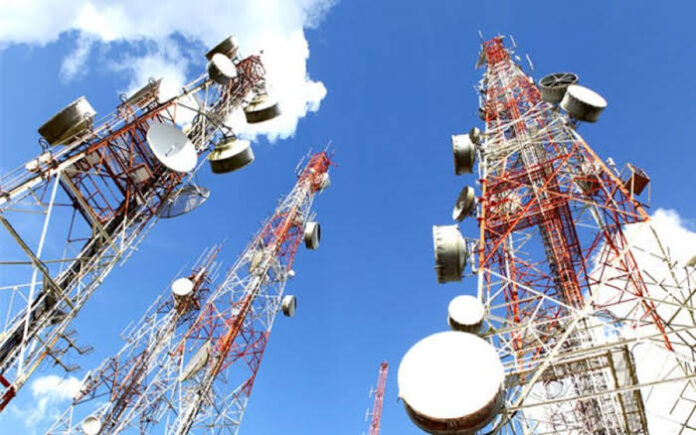In a last-ditch effort to avert the nationwide protest scheduled for tomorrow, February 4, 2025, the Federal Government has called a meeting with the Nigeria Labour Congress (NLC) leaders. This meeting, aimed at addressing concerns over the controversial 50% hike in telecommunications tariffs, comes amidst escalating tensions between the government and workers across the country. The NLC, supported by several civil society groups, has already mobilized for a massive demonstration against the hike, which they argue would exacerbate the already overwhelming economic hardship faced by Nigerians.
The meeting, set to take place at 5 PM today, is being hosted by the Office of the Secretary to the Government of the Federation (SGF). According to an anonymous source from the SGF’s office, the talks are being framed as “a dialogue on matters of national interest” that directly impact the Nigerian workforce. While the government hopes to resolve the situation through discussions, the NLC has made it clear that the tariff increase is non-negotiable. “We are not backing down,” declared NLC President Joe Ajaero. “This tariff hike is unjust, and we will not accept it.”
In addition to the telecom tariff hike, the NLC is also protesting the federal government’s proposed N8 billion budgetary allocation for electricity bill sensitization. Labour leaders have denounced the allocation as wasteful, accusing the government of prioritizing frivolous spending over the welfare of the people. The NLC views this move as emblematic of a broader pattern of government mismanagement and corruption.
The timing of the meeting is critical, as it coincides with a series of scheduled protests organized by the NLC across the country. In a letter sent to its affiliate unions and state councils, NLC General Secretary Emma Ugboaja directed all regional branches to begin preparations for the protest. “We cannot stand by and allow policies that burden the Nigerian people,” Ugboaja wrote, urging workers to show up in full force. “We must resist these hikes and fight for policies that benefit the masses, not corporate interests.”
Across the country, state councils are rallying workers and civil society groups for a unified protest. Demonstrations are set to take place in all state capitals and the Federal Capital Territory (FCT), with protestors gathering at 7:00 AM. NLC members are expected to march to various National Communications Commission (NCC) offices or, where those are unavailable, to their state Houses of Assembly to present petitions against the hike.
The government’s decision to approve the tariff increase has sparked outrage in various sectors. Critics argue that in a nation already grappling with skyrocketing inflation, rising unemployment, and a floundering energy sector, this increase will add undue pressure on the average Nigerian. Telecom services, which have become essential for communication, work, and education, are seen as a vital lifeline that should remain affordable to all.
However, in a move that some see as an attempt to appease the masses, the government has signaled a willingness to engage in dialogue with the NLC. Sources close to the meeting have indicated that the government is hopeful that the discussions will lead to a resolution before the protest gathers momentum. “We are committed to finding a middle ground that benefits both the workers and the nation,” the anonymous source said.
Despite the government’s conciliatory stance, the NLC remains steadfast in its opposition. Labour leaders have voiced strong discontent with the rising cost of living, accusing the government of neglecting the concerns of ordinary Nigerians. The union has been vocal about its displeasure with several government policies, including the recent hike in fuel prices and electricity tariffs. “The government is out of touch with the reality on the ground,” said NLC Vice President, Chris Ngige. “While the elites thrive, the workers are suffering. This tariff hike is just another example of that.”
Telecommunications operators in Nigeria, including giants like MTN, Airtel, and Glo, have defended the tariff increase, citing rising operational costs, inflation, and the need for sustainable business models. “The increase is necessary to ensure the long-term viability of the industry,” said a representative of one of the telecom companies, speaking under the condition of anonymity. “Without this adjustment, we may face an inability to reinvest in the infrastructure that supports the services Nigerians rely on every day.”
Despite these justifications, many Nigerians are unwilling to accept the rationale behind the increase. With the average Nigerian worker already struggling to make ends meet, the proposed hike is viewed as the final straw. “How much more can we endure?” asked Nkechi Aluko, a teacher and NLC member in Lagos. “First, it was the fuel prices, then the electricity hikes, and now telecom tariffs. If we don’t take a stand now, we will be at the mercy of a government that doesn’t care about us.”
The protests, which will be conducted peacefully, are expected to draw significant attention both within Nigeria and internationally. Organizers hope that the demonstrations will send a clear message to the government that the Nigerian people are united in their opposition to policies that exacerbate their struggles.
As the clock ticks down to the protest, all eyes are on the meeting between the government and NLC. While both sides remain entrenched in their positions, the coming days may prove pivotal in determining whether Nigeria’s telecom industry will see any changes to the proposed tariff hikes or whether the NLC will carry out its threat of mass civil disobedience.
The government, meanwhile, is under pressure to make concessions. With the nation’s workers already burdened by various economic challenges, a failure to address the concerns raised by the NLC could lead to widespread unrest. For now, the outcome of today’s meeting will determine whether Nigeria’s telecom industry remains on course for the proposed hikes or if a new chapter in labor-government relations will begin with a resounding protest.

